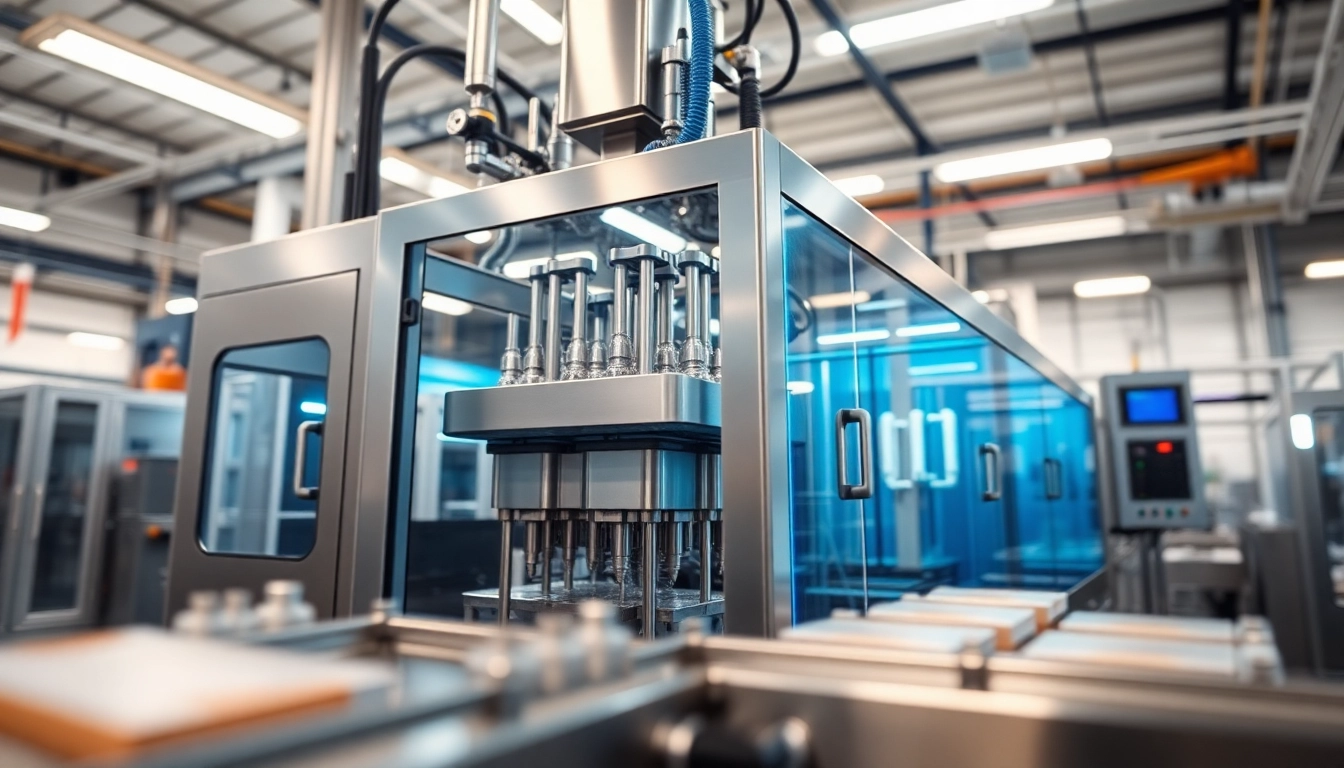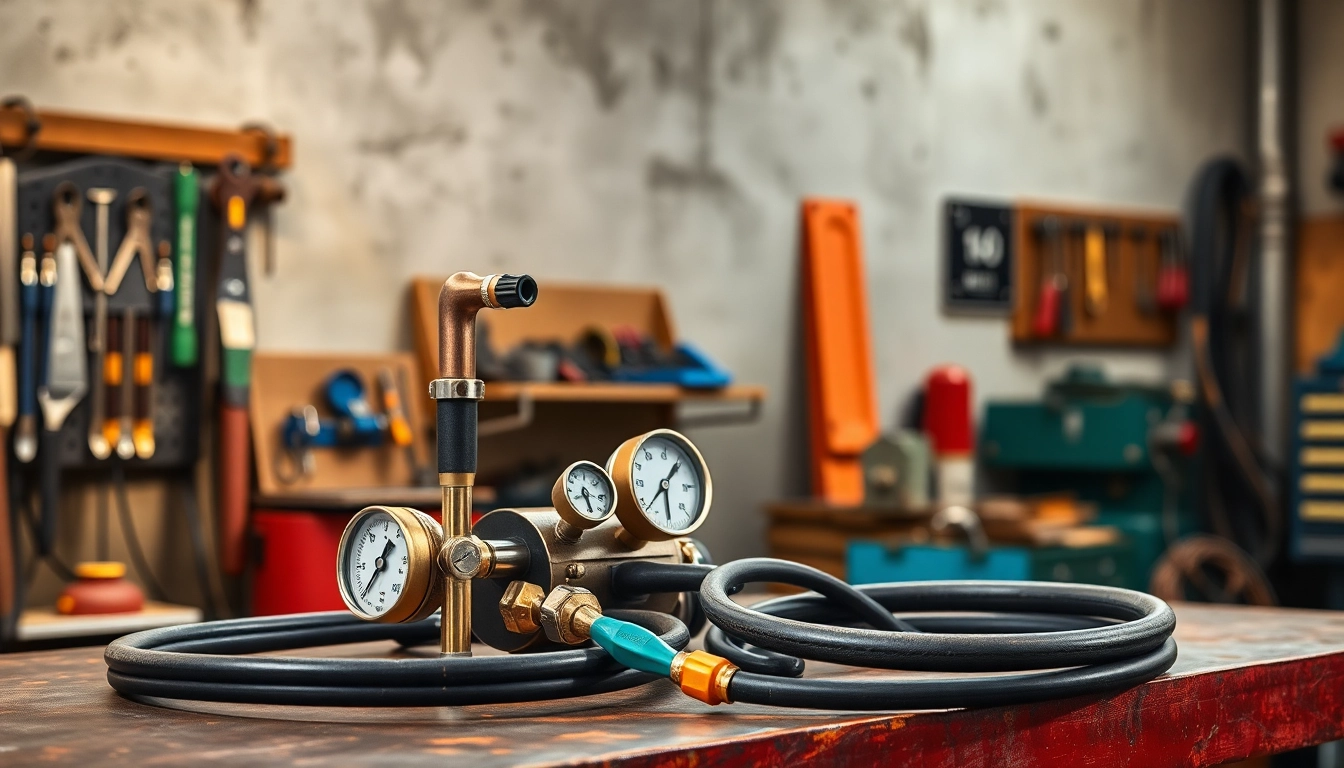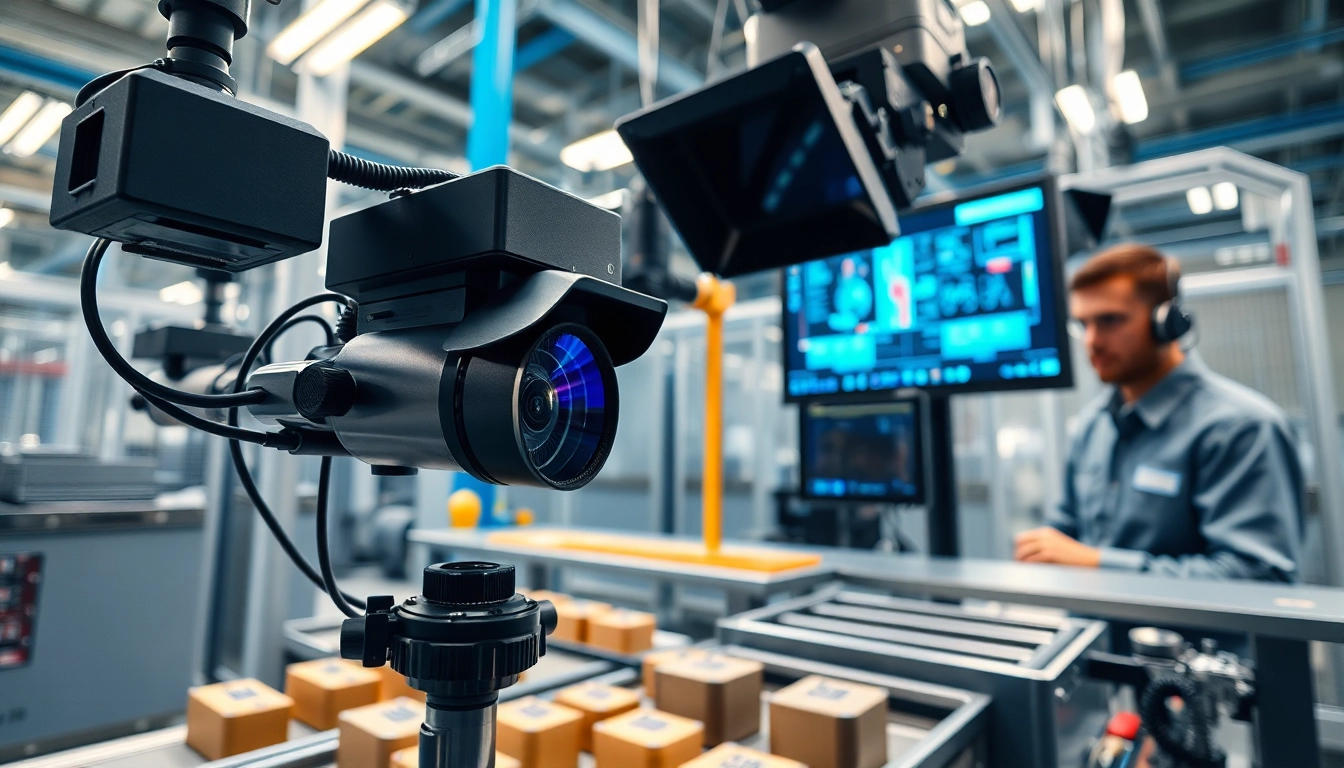Understanding Filling Machines
What are Filling Machines?
Filling machines are specialized devices designed to fill containers such as bottles, jars, or pouches with varying types of products, including liquids, pastes, and powders. These machines are essential for industries ranging from food and beverages to pharmaceuticals and cosmetics. The primary function of filling machines is to ensure that the correct quantity of a product is dispensed into each container, which is crucial for quality control and customer satisfaction.
Filling machines come in various configurations and technologies, each tailored to specific applications and types of products. The machines can handle different filling processes, from simple gravity-fed designs to complex automated systems that utilize advanced technologies for precision and efficiency.
Types of Filling Machines
Filling machines can be categorized based on several factors, including the nature of the product, the filling technology used, and the level of automation. Here are some common types:
- Volumetric Filling Machines: These machines dispense a set volume of liquid. They can operate using either mechanical pumps or gravity.
- Pneumatic Filling Machines: Operating through air pressure, these machines are often used for filling viscous liquids, such as sauces and gels.
- Servo-Driven Filling Machines: These machines use servo motors for precise filling accuracy and speed, making them ideal for high-speed production lines.
- Overflow Filling Machines: Suitable for filling containers of various sizes with liquid, these machines ensure a uniform fill level across all containers.
- Auger Filling Machines: These are specifically designed for powder and granule products, using a rotating auger to displace material into containers.
- Automatic vs. Semi-Automatic Filling Machines: Automatic machines handle all aspects of the filling process, while semi-automatic machines require manual input at certain stages.
Applications of Filling Machines in Industries
Filling machines have a range of applications across various industries, each utilizing these machines in distinct ways:
- Food and Beverage Industry: Filling machines are vital for bottling liquids such as juices, sauces, and dairy products. They help maintain hygiene and extend shelf life through efficient packaging.
- Pharmaceutical Industry: Accurate dosing is critical in pharmaceuticals. Filling machines ensure compliance with strict regulatory standards while minimizing contamination risks.
- Cosmetic Industry: Products such as lotions, creams, and perfumes benefit from filling machines that can handle viscous and sensitive formulations without damaging them.
- Chemical Industry: Filling machines are used for hazardous materials, utilizing specialized designs to prevent leaks and ensure safe handling.
- Household Products: Cleaning and maintenance products often come in liquid or powder form; filling machines efficiently package these products while ensuring consistent quality.
Choosing the Right Filling Machine Manufacturer
Evaluating Manufacturer Reputation and Experience
When selecting a filling machine manufacturer, it’s essential to evaluate their reputation in the industry. A well-established company often has the experience and knowledge required to provide high-quality machinery. Look for manufacturers with:
- Years of experience: Companies with extensive industry experience can better navigate the complexities of filling machine design and operation.
- Customer testimonials: Reviews and testimonials from previous clients can offer valuable insight into the manufacturer’s service quality and product reliability.
- Industry certifications: Certifications such as ISO and CE can indicate that the manufacturer adheres to industry standards for quality and safety.
Understanding the Technology Behind Filling Machines
Modern filling machines utilize advanced technology to enhance efficiency and precision. Familiarizing yourself with the technologies employed by various manufacturers can help you make an informed decision. Key technologies include:
- Smart technology: Some filling machines come equipped with IoT-enabled features that provide real-time monitoring and data analytics.
- Automation: Fully automated machines significantly reduce labor costs and production time, making them ideal for high-volume operations.
- Modular designs: Manufacturers that offer modular filling machines allow for future upgrades and customizations, which can be crucial as your business evolves.
Customer Support and Service Considerations
In addition to the machine’s capabilities, consider the level of customer support and after-sales service provided by the manufacturer. A responsive support team can assist with installation, training, and ongoing maintenance, which is vital for minimizing downtime. Key aspects to assess include:
- Training Programs: Look for manufacturers that offer comprehensive training programs for operators to ensure that machines are used efficiently.
- Spare Parts Availability: The prompt availability of spare parts can drastically reduce machine downtime and restore operations quickly.
- Technical Support: Ongoing technical support options, such as phone or online assistance, can be crucial in resolving operational challenges.
Key Features of High-Quality Filling Machines
Precision and Accuracy in Filling
One of the most critical features of any filling machine is its ability to deliver precise and accurate fills. This is particularly important in industries where even slight variations can lead to substantial cost implications or regulatory non-compliance. High-quality filling machines achieve this through:
- Calibrated Systems: Many machines come equipped with calibration options that allow for adjustments based on specific product requirements.
- Quality Control Mechanisms: Automated sensors that check the fill level in real-time can ensure consistency and minimize errors.
- Feedback Loops: Advanced machines often feature feedback systems that adjust the fill volume dynamically during operation to maintain accuracy.
Automation and Efficiency Enhancements
Efficiency is paramount in today’s fast-paced production environments. High-quality filling machines often include several automation features that enhance operational efficiency:
- Speed Settings: Many filling machines allow operators to adjust the speed of filling to suit specific production needs, optimizing performance.
- Integration with Other Equipment: The capability to seamlessly integrate with capping, labeling, and packaging machines can streamline overall operations.
- Reduced Human Intervention: Automation reduces the need for manual input, which minimizes human errors and frees up labor for more complex tasks.
Customization Options for Specific Applications
Different products require different filling specifications, and manufacturers that offer customizable filling machines can cater to a wider range of applications. Customization can include:
- Specialized Nozzles: Nozzles can be tailored for specific product characteristics, whether it be thick liquids, powders, or fragile items.
- Container Handling: Adjustments for various container shapes and sizes ensure compatibility and efficient filling processes.
- Tailored Software Solutions: Manufacturers may offer software that tailor and optimize fill cycles based on real-time feedback and performance data.
Top Filling Machine Manufacturers in the Market
Leading Brands and Their Offerings
Several leading brands in the filling machine manufacturing space have established reputations for quality and innovation. Some of the most notable include:
- Accutek Packaging Equipment Company: Known for their diverse range of filling machines including piston fillers, gravity fillers, and overflow fillers.
- Cozzoli Machine Company: Leaders in liquid filling, offering high-speed solutions with capping and labeling capabilities.
- Oden Machinery: Specializes in innovative filling solutions tailored for a wide array of industries.
- E-PAK Machinery: Provides robust filling, capping, and labeling machines focusing on the bottling industry.
Comparative Analysis of Market Leaders
Conducting a comparative analysis among leading manufacturers can help you identify the best options for your specific needs. Key factors to evaluate include:
- Product Range: Evaluate the variety and specifications of machines offered by each manufacturer.
- Technological Innovations: Assess the technological advancements incorporated into their machinery, such as automation and connectivity features.
- Pricing Structures: Consider pricing in relation to the features offered, warranty terms, and service agreements.
Innovative Solutions by New Entrants
While established companies dominate the market, new entrants often bring fresh perspectives and innovative solutions. Startups and smaller manufacturers may focus on niche markets or eco-friendly technologies, providing attractive alternatives for businesses looking for specialized solutions.
For example, some new manufacturers are experimenting with smart technologies that provide enhanced connectivity and data tracking, enabling real-time adjustments to filling operations.
Future Trends in Filling Machine Manufacturing
Integration of Smart Technology in Manufacturing
The future of filling machines lies in the integration of smart technologies. These advancements promise better data management and operational efficiency through:
- IoT Connectivity: Allowing machines to communicate seamlessly with other equipment and central systems for optimized operations.
- Real-Time Analytics: Monitoring machine performance in real-time to facilitate predictive maintenance and immediate troubleshooting.
- Remote Accessibility: Provide manufacturers the ability to remotely control and monitor their machines from anywhere, increasing flexibility and responsiveness.
Sustainability Practices in the Filling Industry
Sustainability is a growing concern in manufacturing industries, and filling machine manufacturers are increasingly focusing on eco-friendly practices. This includes:
- Energy-Efficient Designs: Incorporating energy-saving components that reduce overall power consumption in machinery.
- Recyclable Materials: Utilizing sustainable materials in manufacturing processes or providing machines that can help reduce waste.
- Waste Reduction: Implementing processes that minimize product waste during filling and packaging stages.
The Impact of Industry 4.0 on Production Efficiency
Industry 4.0 is revolutionizing manufacturing processes, including filling operations. The adoption of Industry 4.0 principles can enhance production efficiency through:
- Increased Automation: Automating routine tasks allows for higher production rates and consistency in output.
- Data-Driven Decisions: Leveraging data analytics to refine processes and make informed changes based on performance metrics.
- Enhanced Customization: Rapid prototyping and flexible manufacturing that can quickly adapt to changing consumer demands and market trends.
As the filling machine market continues to evolve, staying informed about the latest trends and technologies will be essential for businesses aiming to enhance operational efficiencies and maintain a competitive edge. For businesses considering investment in filling machines, partnering with reputable Filling Machine Manufacturers is crucial to harnessing the benefits of modern filling technologies.



